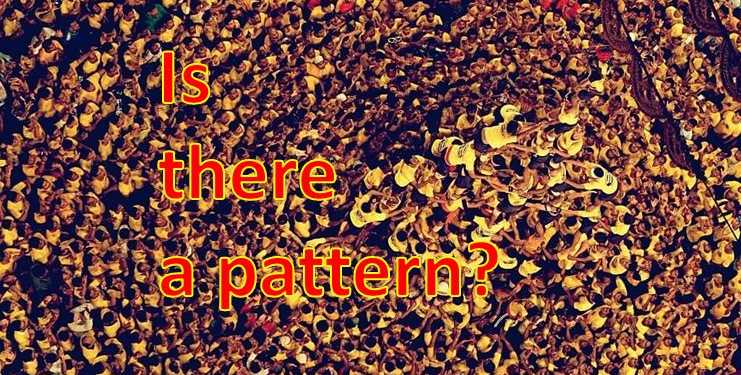After Sabarimala Temple and Jallikattu, the Judiciary of India has found a new nexus of evil in Hinduism that needs to be curbed with immediate effect: Dahi Handi.
In another instance of Judicial overreach, the Supreme Court of India deemed the Hindu festival ‘very scary’ and decided to limit the height of the Dahi Handi to 20 feet.
It is time for us to address the fact that the Progressive meme has infected the judiciary and unsurprisingly, our Dharmic practices are under threat from the most powerful wing of the Secular State.
The judgment comes at a time when there is monstrous pile of cases already pending in courts. It would normally come as a surprise if it hadn’t become the norm in the past few months that at a time when the Judiciary is under severe scrutiny for the sheer magnitude of pending cases, it finds the time to attack Hindu cultural practices.
The Judges even had the audacity to assert during the hearing that the Govindas aren’t really going to earn any Olympic medals with their efforts, because obviously, conflating one issue with a completely different issue to justify your agenda and a decision that doesn’t make much sense.
Like I have said several times earlier, until and unless Hindus realize that every single wing of the Secular State is inherently aligned against them, the collective assault on their cultural identity shall continue unabated.
First, the issue of the Sabarimala Temple, then Jallikattu and now Dahi Handi. First time is a chance, second is coincidence, the third is a pattern.
Unless Hindus wake up to the imminent threat to their civilizational existence, fighting the continuous onslaught from several fronts at once will prove to be too large an obstacle to surmount.
The enthusiasm and the self righteous indignation with which the Judiciary views Hindu culture and traditions has become the norm for our times. Compared with the silken gloves with which the Judiciary treats Islamic traditions which are far more barbaric and completely at odds with the values of human rights in our constitution, its treatment of Hindu traditions stands out in stark contrast. If the Judiciary can regulate Hindu traditions on its own, then the caution with which it has proceeded with regards to Islamic practices such as Triple Talaq is suspicious. But then again, the concessions the Progressives make towards Islam is well known.
By pronouncing a diktat that is unimplementable by design, the Supreme Court of India has led scores of law-abiding citizens to disregard the mandate of the Judiciary and uphold their tradition. For any democracy which relies heavily on its Judiciary to uphold its constitution, forcing peaceful law-abiding citizens to disregard a judicial mandate does not bode well for the health of the democracy. The diktat of the judiciary also highlights a glaring issue, that its top branches are woefully out of touch with the populace of their own nation and vastly overestimate their authority.
The cognitive dissonance of the Progressive mind has been yet again laid bare for all to see. For a Judiciary which harps on and on about how it is its duty to protect the ethos of liberty embedded in our constitution, it feels no compunction while interfering with a tradition that people participate in of their own free will. Liberty is a virtue to be cherished, according to progressives, unless its free men practicing their tradition, then it needs to be actively regulated.
Quite predictably, there has been widespread violations of the senseless Supreme Court order to limit the height of the Dahi Handi to 20 feet as numerous organizations set the pot of Dahi at heights as high as 40 feet. Perhaps, it is a sign of our times that I find myself agreeing with the MNS lawmaker who stated quite clearly that he will violate the law regarding Dahi Handi.
Unless the judges at the Supreme Court deliberately want to push the nation towards anarchy, it serves no purpose to prevent people from practicing a tradition that is so significant in Hindu culture and instilling in them a self righteous disregard for the diktats of the Judiciary.

























